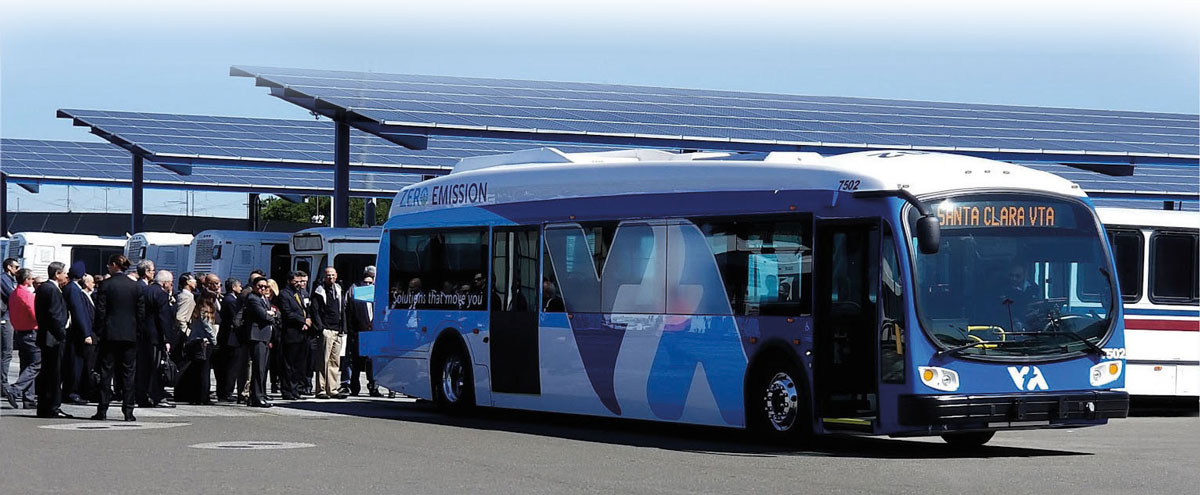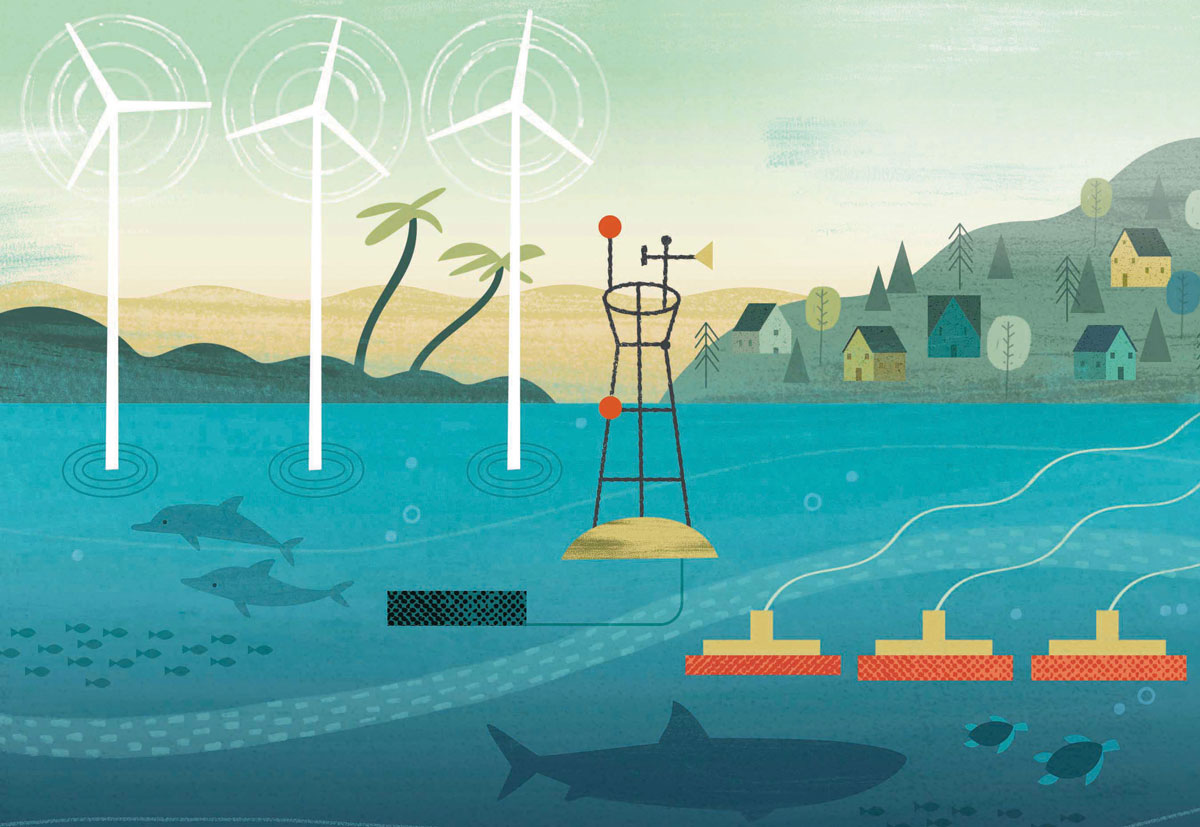
California is on the road to big change. By 2040, its entire fleet of transit vehicles must be emission-free.
Since 2018, faculty affiliated with Lehigh’s Institute for Cyber Physical Infrastructure and Energy (I-CPIE) have been contributing to that goal by assisting the Santa Clara Valley Transportation Authority (VTA) in the development of a smart microgrid that will power a fleet of electric buses.
Such a microgrid needs to account for the complex interplay of factors required to get riders from point A to point B using zero-emission vehicles: The fleet has to generate a portion of its own energy from solar-paneled bus depots; it has to be able to store some of that energy locally to offset the daily price spikes as the sun sets and the main grid loses cheap solar generation; and it must be able to operate when the main grid goes down.
 “You have generation, chargers, storage, the schedules the buses have to follow, plus all the data around bus and driver performance, traffic congestion, predicted weather forecast, as well as the solar forecast, and our research has focused on coordinating all of that,” says Shalinee Kishore (pictured), Iacocca Chair Professor of Electrical and Computer Engineering and associate director of I-CPIE.
“You have generation, chargers, storage, the schedules the buses have to follow, plus all the data around bus and driver performance, traffic congestion, predicted weather forecast, as well as the solar forecast, and our research has focused on coordinating all of that,” says Shalinee Kishore (pictured), Iacocca Chair Professor of Electrical and Computer Engineering and associate director of I-CPIE.
Kishore and her team are developing algorithms with the VTA that will help the agency schedule bus charging, design routes, assign bus operators, use local energy storage and solar generation, and coordinate with the main grid. Kishore credits an exceptionally driven cohort of graduate and undergraduate researchers with the
progress they’ve made to date on solving many of these problems.
“This project has a lot of traction with students,” she says. “They’re passionate about developing sustainable futures for our cities and communities. And the VTA has loved what they’ve done so far in giving them new solutions for their system.”
In January, the VTA was granted an additional $4.7 million from the California Energy Commission’s Clean Transportation Program to install 34 new bus chargers, solar panels, and a microgrid at one of their bus yards. (The award completes a $16.4 million funding goal for the project, which is slated to come online in 2023, per the VTA.) The I-CPIE team will continue its data analysis as these new deployments come on board, says Kishore, and optimize the algorithms as required. They’ll also be involved in community outreach, she says, creating content that the VTA will disseminate to stakeholders, and in particular, to disadvantaged communities. In part, the outreach is meant to alleviate safety concerns people might have around energy storage infrastructure and communicate what the VTA is doing to address those concerns.
“We’ve already had such a fruitful relationship with the VTA, and now we have this grant to show for it,” says Kishore. “This project is a fascinating opportunity for Lehigh. It leverages our strengths across such a range of disciplines. The system is undergoing a revolution, and while Lehigh hasn’t had a traditional strength in transportation, a project like this is going to help us grow into a space that, I think, is part of our future.”

